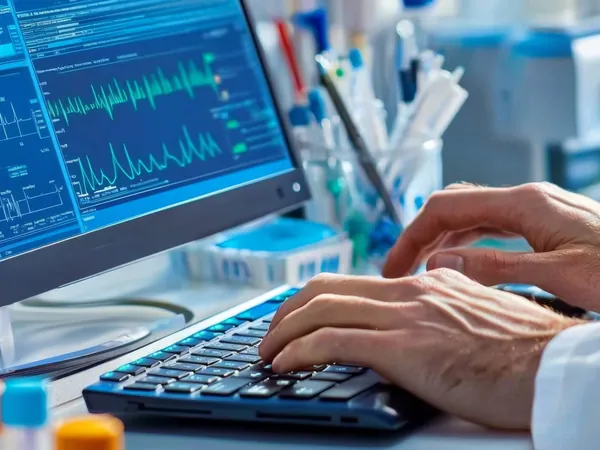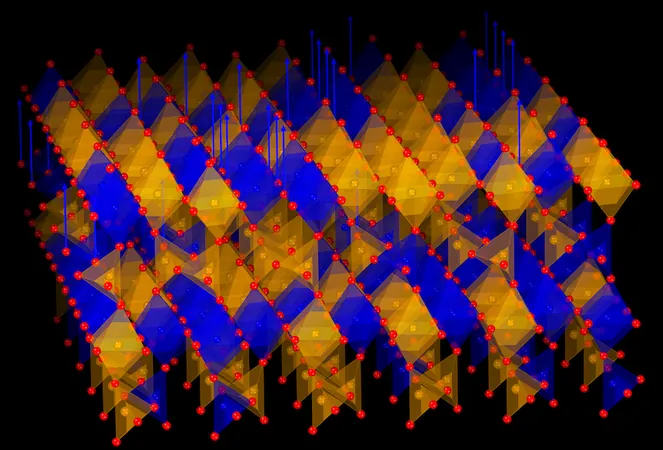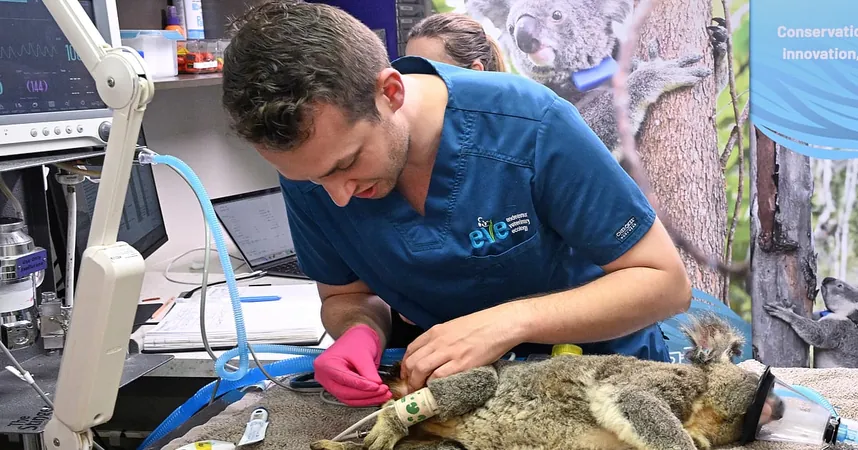
Revolutionary AI Uncovers Hidden Signs of Parkinson's Disease: A Game Changer in Early Detection!
2025-09-10
Author: Rajesh
Unveiling the Silent Symptoms of Parkinson's!
Imagine being able to catch the tiniest hints of Parkinson's disease before doctors even notice. Groundbreaking research from the University of Florida is doing just that, leveraging artificial intelligence to analyze even minute motor function changes.
How AI Is Changing the Game!
Dr. Diego L. Guarín, a leading researcher at UF, is pioneering this innovative approach. By examining video recordings of simple finger-tapping movements from 66 participants, he can identify subtle shifts in movement related to Parkinson's and other brain disorders.
What makes this study particularly compelling is that participants showed no visible symptoms of Parkinsonism during their tests. Traditional clinicians deemed them healthy, but the AI analysis revealed hidden motor alterations.
The Importance of Early Detection
Early detection of motor function changes is crucial, especially for individuals with idiopathic REM sleep behavior disorder (iRBD)—a condition where people act out their dreams. Remarkably, over 80% of those with iRBD may eventually develop Parkinson’s. This makes them a key target in early diagnosis initiatives.
Revolutionary Technology Gives Clear Insights!
Using VisionMD, the team's open-source AI software, researchers were able to highlight discrepancies in movement that aren't visible to the human eye. Guarín explains, "Our analysis can pick up on nuances that even expert clinicians might miss. For example, the AI flagged individuals as moving slower than expected, signaling potential issues ahead."
Significant Discoveries on Movement Patterns
The research also uncovered the 'sequence effect'—a notable decrease in movement amplitude during repetitive tasks, which appeared in both iRBD and Parkinson’s patients. Understanding this effect may provide vital insights into the mechanics of these brain disorders.
The Future of Screening: Accessible and Effective!
This revolutionary approach suggests that simple screening could be performed using just a smartphone or webcam, potentially offering faster diagnoses for those at risk. Dr. Guarín emphasizes that this could significantly improve the prospects of early intervention and management of neurodegenerative diseases.
The future is bright with AI leading us toward earlier detection and better outcomes for at-risk individuals!





 Brasil (PT)
Brasil (PT)
 Canada (EN)
Canada (EN)
 Chile (ES)
Chile (ES)
 Česko (CS)
Česko (CS)
 대한민국 (KO)
대한민국 (KO)
 España (ES)
España (ES)
 France (FR)
France (FR)
 Hong Kong (EN)
Hong Kong (EN)
 Italia (IT)
Italia (IT)
 日本 (JA)
日本 (JA)
 Magyarország (HU)
Magyarország (HU)
 Norge (NO)
Norge (NO)
 Polska (PL)
Polska (PL)
 Schweiz (DE)
Schweiz (DE)
 Singapore (EN)
Singapore (EN)
 Sverige (SV)
Sverige (SV)
 Suomi (FI)
Suomi (FI)
 Türkiye (TR)
Türkiye (TR)
 الإمارات العربية المتحدة (AR)
الإمارات العربية المتحدة (AR)